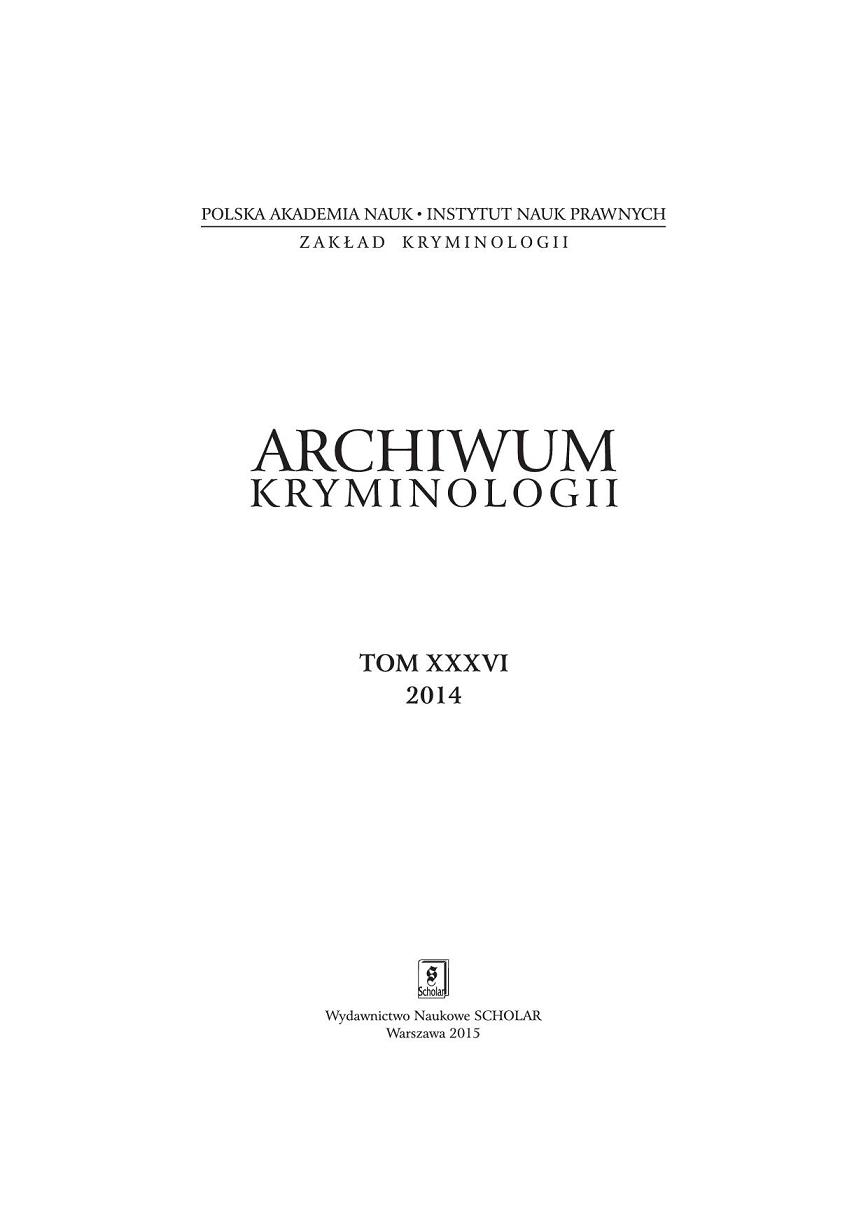Mediacja z udziałem małoletniego - zagadnienia wiktymologiczne
Mediation with the Participation of a Minor: Victimological Issues
Author(s): Dominika Bek, Olga SitarzSubject(s): Law, Constitution, Jurisprudence
Published by: Instytut Nauk Prawnych PAN
Keywords: mediation; minor; victimology;
Summary/Abstract: A child can participate in mediation in criminal cases where he/she is a party to the proceedings and in juvenile cases. This occurs in the basic situations where he/she is either the perpetrator or the victim of a criminal act. These are obviously very different roles. A child is involved in proceedings for different purposes when he/she has been wronged than when he/she is the wrongdoer. In either case, however, the child requires special protection and treatment on account of his/her physical, psychological, emotional and intellectual immaturity. The Polish legislature recognises this and has introduced special provisions for children, i.e. juvenile and youth offenders and minor victims. Mediation with juveniles has acquired its own regulations. It might not be overly popular, but it is relatively well formulated. There are no such special provisions, however, for minor victims of criminal acts. Nor has this issue been given much consideration in the literature. As if that were not worrying enough, the key statement of the courts (Supreme Court Decision I KZP 9/12 of 20 June 2012) gives additional cause for concern as it shows that the objectives and principles of mediation are not sufficiently understood by the Supreme Court. Determining whether mediation can be conducted with a child who has been wronged by a crime committed by one of his/her parents is the primary goal the authors have set themselves. This does not so much concern the normative layer – where the law does not impose any limitations – as the ability of the child to take part in a mediation meeting and the possibility of assuring him/her adequate protection. These considerations raise several detailed issues whose specifications require a “child”, a “victim” and a “wronged party”. The nature of reconciliation and forgiveness, as distinctive features of mediation agreements, have to be analysed. Whether certain types of criminal cases (and not just those involving children) are suitable for mediation proceedings is another question that has to be answered). Children are often victims of violent crimes. These types of cases are highly contentious in the context of mediation, even when the victims are adults. This issue is evaluated against the main principles of mediation, viz. that it be voluntary and that the two sides be evenly matched. Accepting the admissibility of children participating in mediation raises the following questions as to how this admissibility is to be qualified: the minimum age of the child; representation of the child by a parent, guardian or probation officer; and special mediator training. The problems identified in the study acquire a particularly drastic dimension when the perpetrators of crimes against children happen to be the children’s own parents. Mediation between a child-victim and a perpetrator-parent is so fraught with danger as to make it inadmissible in such cases. The authors’ reservations concerning mediation with minor victims do not
Journal: Archiwum Kryminologii
- Issue Year: 2014
- Issue No: XXXVI
- Page Range: 363-388
- Page Count: 26

